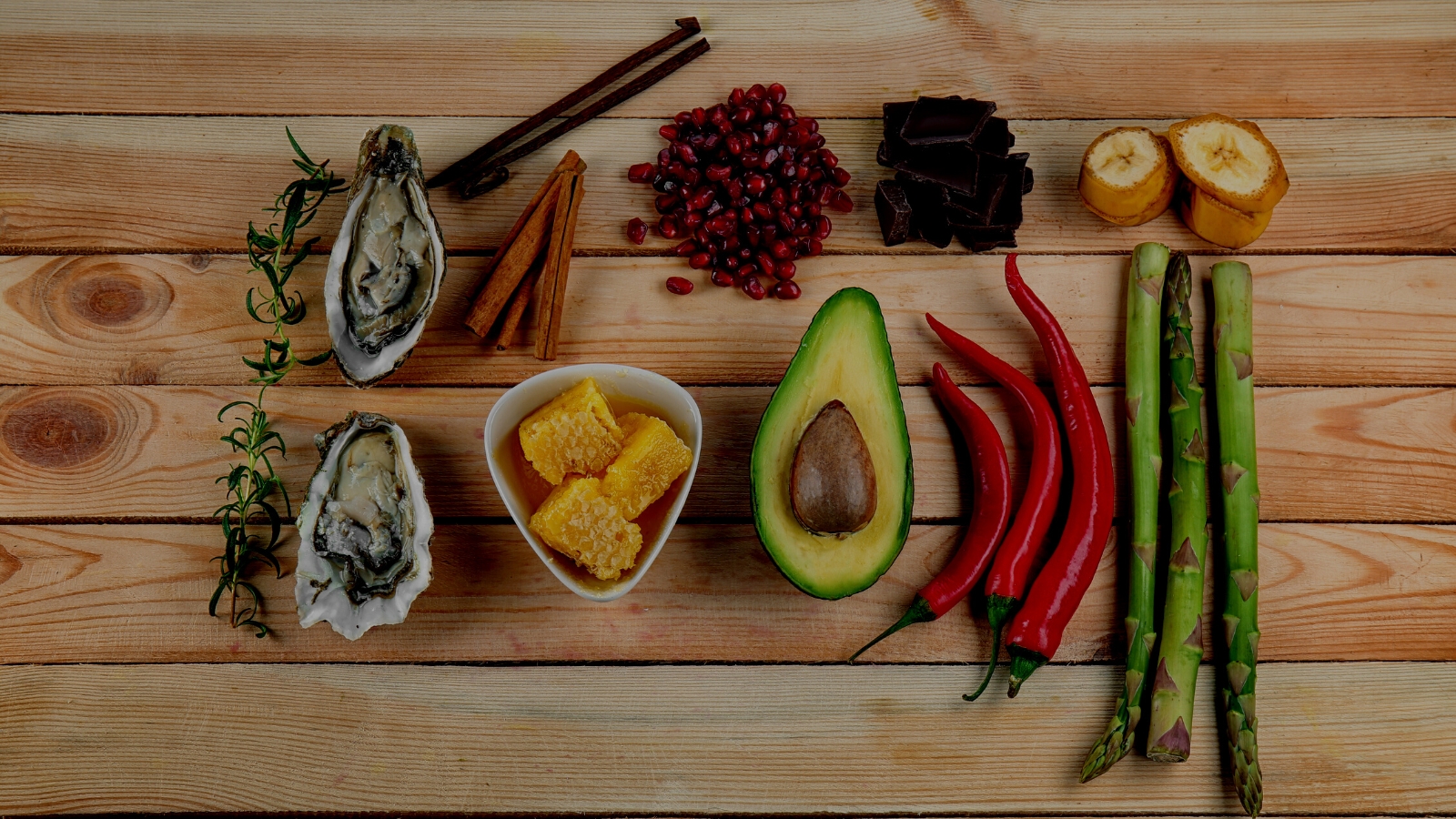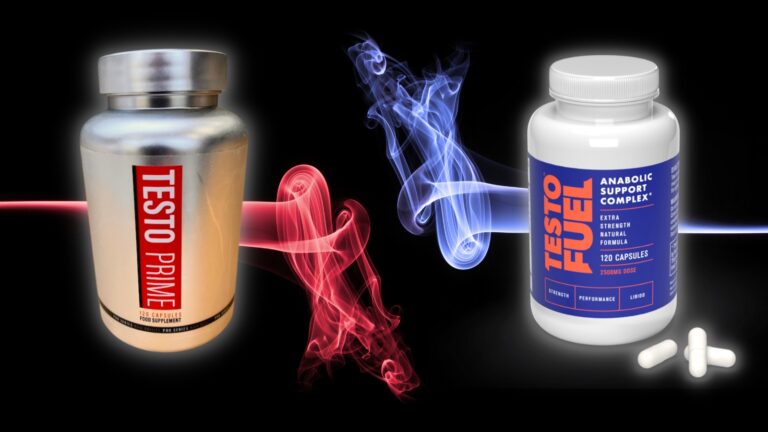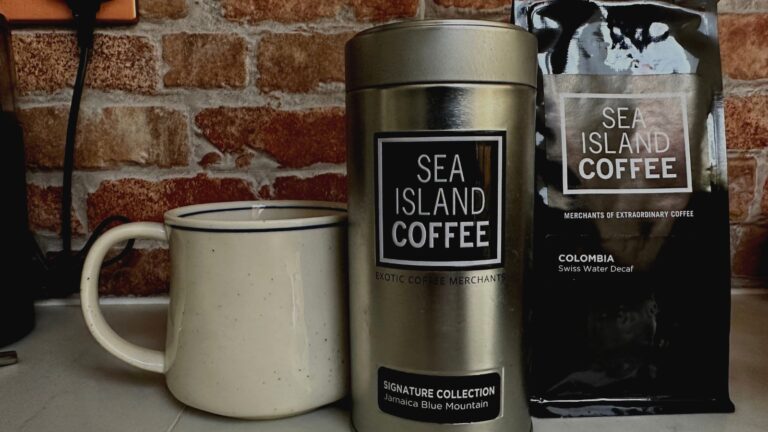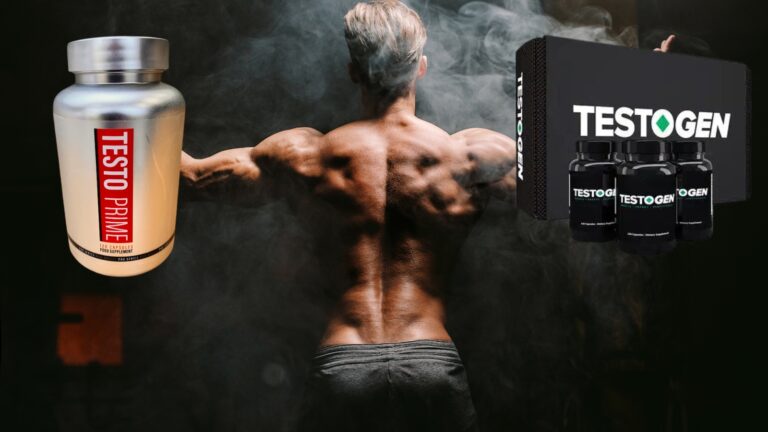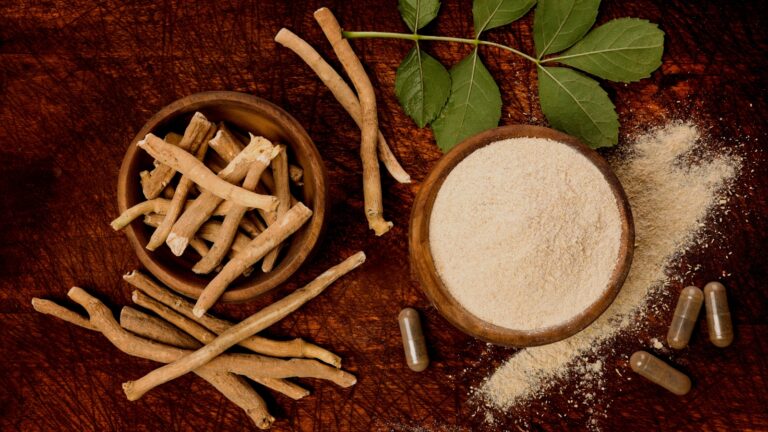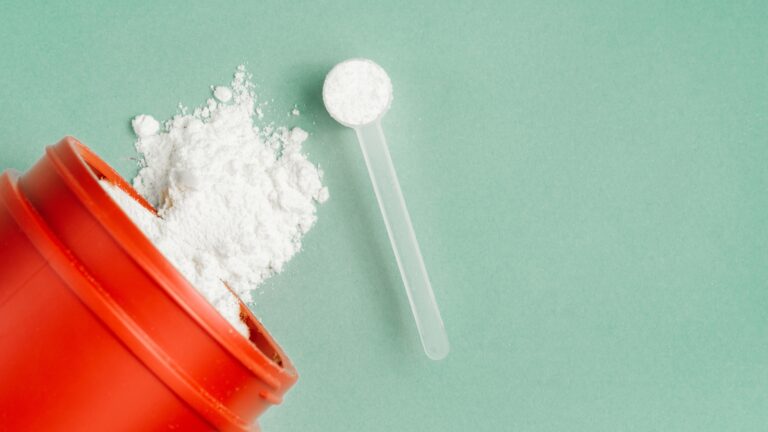As we know, testosterone plays a crucial role in men’s health. It contributes to muscle growth, bone strength, and even libido. Some people may experience low testosterone levels, which can lead to fatigue, loss of muscle mass, and reduced sexual drive. The good news is that specific dietary choices can help boost testosterone levels naturally, without resorting to medications or therapies.
Understanding the connection between diet and testosterone can help us make more informed decisions about the foods we consume every day. By incorporating specific foods known to boost testosterone, we can potentially improve our overall health, energy levels, and zest for life.
In this article, we will explore various foods that boost testosterone and discuss the science behind their effectiveness.
Key Takeaways
- Some dietary choices can help increase testosterone levels naturally
- Incorporating testosterone-boosting foods into daily life can improve overall health and vitality
- The science behind these foods and lifestyle changes aids in better understanding their effectiveness.
Understanding Testosterone
As we age, our total testosterone levels tend to decrease. This male hormone is primarily produced in the testicles and plays a crucial role in the development of muscle, bone mass, and body fat distribution. When experiencing low testosterone, individuals may suffer from hypogonadism, which can lead to fatigue and negatively impact overall well-being.
I firmly believe that understanding the relationship between testosterone and various factors such as age, diet, and exercise is essential. A decline in testosterone levels is a natural part of ageing, but certain lifestyle choices can further exacerbate the process. For example, having excess body fat can lead to low testosterone levels, as fat cells convert testosterone into estrogen.
It’s important to monitor and maintain healthy levels of this sex hormone, as they contribute to muscle growth and strength. A balanced diet and regular physical activity can help support the production of this vital hormone.
Foods That Boost Testosterone

As an advocate for a healthy lifestyle, I’ve come across some of the best foods that can help increase testosterone levels. Dietary choices play a significant role in maintaining optimal hormone levels and overall health. A testosterone-boosting diet should include essential nutrients and a balance of macronutrients.
A good starting point for increasing testosterone is emphasising zinc-rich foods. For instance, oysters are an excellent source of zinc, a crucial mineral for testosterone production. Other shellfish such as crab and fish like mackerel and tuna can also promote higher testosterone levels.
Vitamin D, also known as the “sunshine vitamin”, is another essential nutrient that positively impacts testosterone levels. Fatty fish such as salmon boast high amounts of vitamin D. In addition to fatty fish, you can also get this vital nutrient from eggs and milk.
Incorporating leafy green vegetables like spinach, kale, and other healthy vegetables, not only adds variety to your meals but also supplies your body with valuable nutrients like magnesium. Magnesium is crucial for maintaining proper muscle and nerve function, and it positively correlates with testosterone levels.
Protein is an indispensable part of a healthy diet. Consuming adequate protein through red meat, legumes, and beans supports muscle growth while encouraging healthy testosterone levels. However, I recommend striking a balance between protein and carbohydrate consumption, as a study found consuming excess protein might lead to lower testosterone levels.
Healthy fats are necessary for hormone production and overall well-being. Foods rich in omega-3 fatty acids, such as avocados, nuts, and seeds, can aid in boosting testosterone. Additionally, berries offer antioxidants that support general health and hormonal balance.
Some other foods that could help increase testosterone include onions, garlic, cocoa, and honey, which are believed to contain compounds that facilitate testosterone production. Compounds like quercetin, apigenin, and boron found in pomegranate, ginger, and legumes respectively might also contribute to higher testosterone levels.
In conclusion, a combination of micronutrient-rich foods, a balanced intake of macronutrients, and a diet diverse in fruits, vegetables, and lean protein sources can contribute to enhanced testosterone levels and overall health.
Impact of Lifestyle and Dietary Changes

In my experience, managing stress levels is crucial for maintaining optimal testosterone levels – especially if you already suffer from a testosterone deficiency. When I am under excessive stress, my body produces more of the hormone cortisol, which can reduce testosterone production. I make sure to get enough sleep, engage in relaxing activities, and practice mindfulness meditation to keep my stress under control.
Another factor that impacts my testosterone levels is my alcohol consumption. Drinking alcohol can lead to weight gain and increase inflammation, which may negatively affect testosterone production. I limit my alcohol intake and opt for healthier alternatives like water or green tea.
I’ve noticed that being overweight can also contribute to low testosterone levels. Excess body fat, especially around the waist, may lead to increased aromatisation of testosterone to oestrogen. To combat this, I focus on regular exercising, including a combination of high-intensity interval training (HIIT) and weightlifting. This not only helps in reducing body fat but also stimulates testosterone production.
Inflammation can result from unhealthy dietary choices, such as processed foods, contributing to lower testosterone levels. I’ve found that maintaining a balanced diet, rich in nutrients and vitamins, is essential. Including foods high in zinc, vitamin D, and healthy fats, while avoiding calorie restriction, has helped me in keeping my testosterone levels healthy.
In my personal observation, medications may also contribute to lowering testosterone levels. Some medications for depression, heart conditions, or cholesterol might have side effects that impact hormone production, including testosterone. I always consult my doctor about potential interactions before starting a new medication.
One more factor that I consider significant is my age. As I get older, my testosterone production naturally decreases, which may lead to symptoms like a reduced sex drive, depression, or impotence. To counteract this decline, I pay attention to my lifestyle choices, such as exercising and maintaining a healthy diet, as they play a crucial role in optimising my hormonal health.
Understanding the Science Behind Testosterone Boosting Foods

As we explore the world of foods that increase the production of testosterone, it’s essential for me to understand the science behind them. In this section, I will delve into the crucial micronutrients, healthy fats, and antioxidants and flavonoids that contribute to testosterone production in the body.
Crucial Micronutrients
Some essential micronutrients like zinc, vitamin D, and magnesium play a vital role in testosterone production. A deficiency in these micronutrients could potentially harm testosterone levels. For instance, zinc deficiency has been linked to decreased testosterone levels in men source.
Zinc can be found in oysters, red meat, poultry, beans, and nuts. Consuming foods rich in zinc allows the body to maintain balanced testosterone levels effectively.
Vitamin D is essential as well. It’s a fat-soluble vitamin that can be obtained from sunlight, fatty fish, and fortified foods. Studies have shown that vitamin D supplementation may boost testosterone levels source.
Magnesium is another crucial micronutrient that supports testosterone production. It can be found in foods like dark leafy greens, seeds, nuts, and whole grains. Incorporating magnesium-rich foods into my diet may potentially improve my testosterone levels.
The Effect of Healthy Fats
Healthy fats, including monounsaturated and polyunsaturated fats, play an essential role in supporting hormone production, including testosterone. For instance, omega-3 fatty acids, found in fish, nuts, and seeds, help maintain balanced testosterone levels.
One popular healthy fat source is the avocado. Avocados are a great source of monounsaturated fats and provide essential nutrients and vitamins, making them an excellent addition to my diet to help support testosterone production.
Role of Antioxidants and Flavonoids
Lastly, antioxidants and flavonoids are compounds found in fruits, vegetables, and other plant-based foods that may positively impact testosterone levels. They do so by reducing inflammation and oxidative stress, which can negatively affect testosterone production.
For example, berries are rich in antioxidants. By incorporating them into my diet, I might increase my body’s ability to maintain balanced testosterone levels.
Flavonoids are another beneficial compound found in plant-based foods like cocoa, tea, and certain fruits. Studies have shown that a higher intake of flavonoids may be associated with improved testosterone levels (source](https://academic.oup.com/jsm/article-abstract/16/2/203/6980564).
By understanding the science behind testosterone-boosting foods, I can make informed decisions about which foods to include in my diet to support my hormonal health.
Verdict

In my research, I’ve found that you can consume several foods that potentially boost your testosterone levels. Foods such as tuna, salmon, and other oily fish are rich in vitamin D, which has been shown to have a positive impact on testosterone levels. Additionally, oysters, shellfish, and other zinc-containing foods are often hailed for their potential to increase this hormone.
Another interesting option is consuming pomegranate, as it’s been suggested that its antioxidant properties can lead to improved testosterone levels. Incorporating leafy green vegetables, such as spinach and kale, into your diet can contribute to a balanced intake of essential nutrients, possibly having a positive effect on hormone production.
It’s worth noting that while these foods may help boost testosterone, it’s crucial not to rely solely on them for hormone regulation. A well-rounded and balanced diet, regular exercise, and good sleep habits are essential for maintaining optimal hormonal balance.
Remember, moderation is key – consuming excessive amounts of any single food or nutrient may lead to imbalances and potential health issues. It’s always best to consult with a healthcare professional before making significant changes to your diet or lifestyle.

